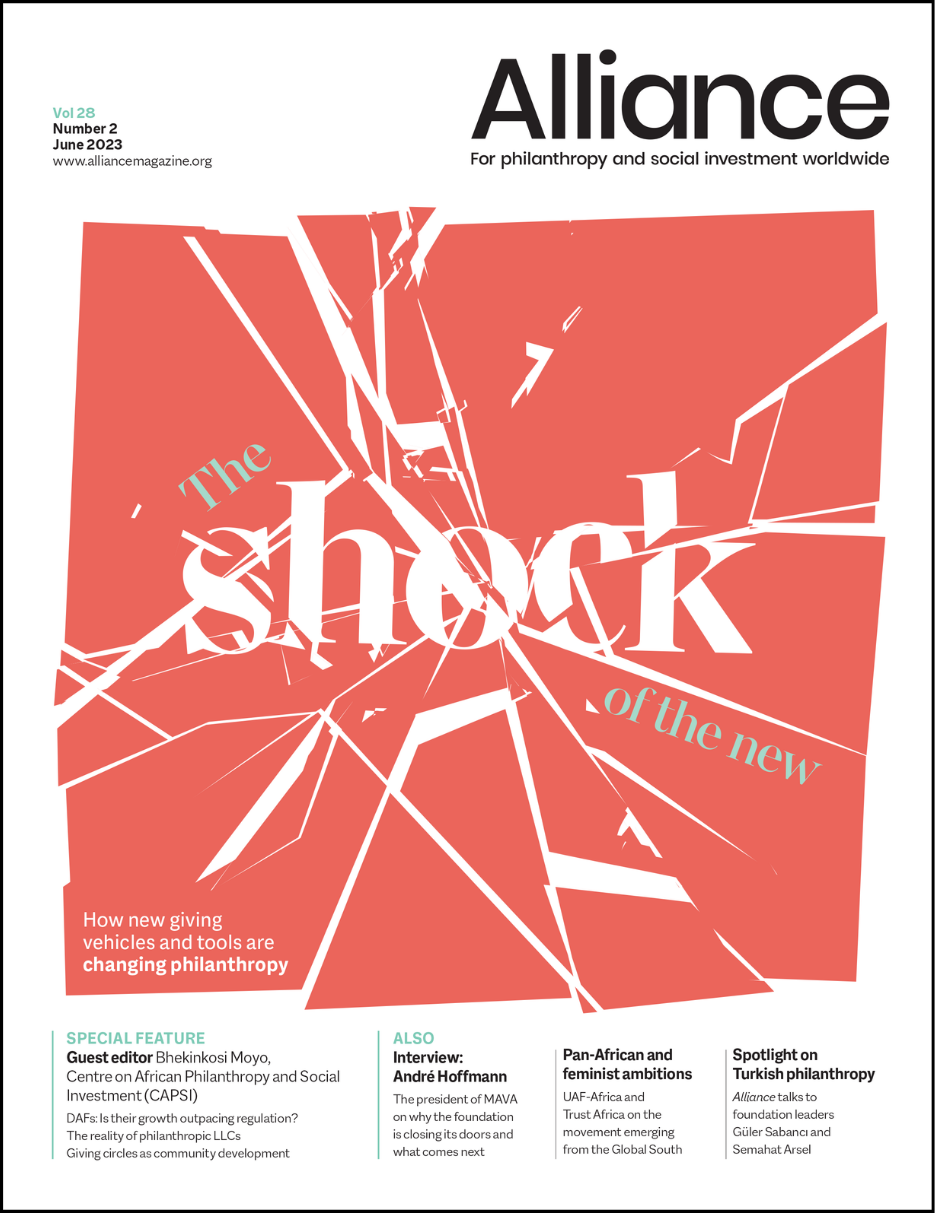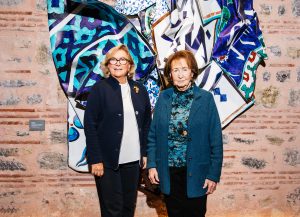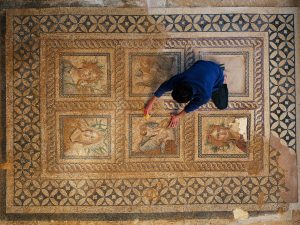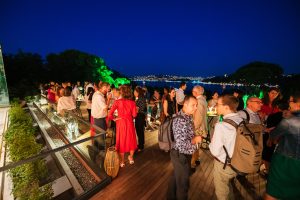Güler Sabancı and Semahat Arsel, representatives of the Sabancı Foundation and the Vehbi Koç Foundation – two of Turkey’s leading philanthropies – speak to Alliance about their work in the wake of recent crises, the changing landscape of Turkish philanthropy generally, and the growing need for collaboration.
Alliance: Tell us about the work of your foundations.
Semahat Arsel: Vehbi Koç Foundation, one of the first charitable foundations of the Turkish Republic, was established in 1969 by Vehbi Koç. The foundation works in the field of education, health and culture, which are among the basic requirements of life for a modern and developing Turkey, and has been a model for philanthropists since its establishment. It delivers a substantial part of its services through its leading institutions, which include Koç University, Sadberk Hanım Museum, Arter, Meşher, Koç School and VKV Healthcare Institutions. The foundation also runs large-scale public projects. In order to create equal opportunities, for instance, it has provided scholarships to thousands of talented youngsters, who have limited financial means.
Güler Sabancı: The Sabancı Foundation was established in 1974 by the Sabancı family in line with the principle of ‘sharing what we have obtained from this land with its people’, adopted by the late Hacı Ömer Sabancı as a way of life. Our foundation is among the largest foundations established by a family in Turkey and works in education, arts and culture, and social change efforts. We have over 120 institutions throughout Turkey, including schools, libraries, dormitories, hospitals, and arts and culture centres. We have carried out arts and culture activities in cinema, theatre, and music for many years. In the field of social change, we carry out long-term projects, such as Grant Programmes, Changemakers, and Young Women Building Their Future, to create equal opportunities for women, young people and people with disabilities.
Semahat, as one of the oldest and biggest charitable foundations in Turkey, the Koç Foundation must have a lot of influence in the sector. How have you used that influence to push Turkish philanthropy forward?
SA: Solidarity, exchange and collaboration among philanthropic organisations are essential in times of uncertainty and massive change. We feel the responsibility of supporting the development and infrastructure of the Turkish philanthropic sector. Our founder worked vigorously to form a legal base for the new foundations in Turkey. Moreover, in addition to his own foundation, he established several other civil society organisations and foundations to speed up the development of the country in social, economic, and cultural matters. The foundation currently supports the development of the civil society sector and especially the organisation TUSEV (Third Sector Foundation of Turkey) in order to build capacity in the field.
Güler, you’re a part of the third generation of the Sabancı family’s philanthropy. How has the family directed the foundation’s work over the years? And how did you contribute to this shift in the foundation’s strategy?
GS: The Sabancı family has contributed significantly to the development of the Turkish economy for many years and philanthropy has always held an essential place in our family culture. Sabancı Foundation was established to institutionalise the family’s charitable activities. Upon assuming the role of chair of the Board of Trustees, I recognised the institution’s established reputation as a stalwart and reliable entity. Subsequently, my colleagues and I deliberated on potential avenues for progress and embarked on a journey to initiate a new era. The year 2006 was a turning point for us. We held a search conference where we examined good philanthropy practices around the world and how foundations in other places had developed. Paralleling the social changes and developments in Turkey and the world, we established a strategy based on our past experiences in philanthropy. We knew that constructing buildings was not enough. We have progressed by believing in the importance of reaching out to people and adopting a holistic, problem-solving approach to meeting social needs. We established partnerships with United Nations organisations and developed our international cooperation by participating in global platforms. We launched our Grant Programmes, which are a first in Turkey in terms of duration and scope, and we have been giving grants to civil society organisations for the past 16 years.
We have progressed by believing in the importance of reaching out to people and adopting a holistic, problem-solving approach to meeting social needs.
I want to ask about the devastating earthquake that struck Turkey and Syria in February. How have your foundations responded
SA: These earthquakes are one of the biggest disasters the Republic of Turkey has ever experienced. We have been working not only as the Vehbi Koç Foundation, but also with Koç Group companies operating all over Turkey, to respond to the emergency and to heal our wounds. As a first response, all Koç Group companies were mobilised for urgent needs such as electric heaters, clothes, blankets, lamps, stoves, tubes, and basic food. A supply operation was carried out with many tankers to meet the critical fuel need for search and rescue and aid activities in the region. Mobile kitchens, which can prepare meals for 1,000 people every three hours, were put into service. The service provided by Koç Group trucks continues to increase to meet the hot food, laundry, and cleaning needs in the region. Currently, temporary living spaces consisting of 5,000 containers are being established to host approximately 20,000 people. Koç Group has provided two billion Turkish Lira of resources to the region.
These earthquakes are one of the biggest disasters the Republic of Turkey has ever experienced. We have been working not only as the Vehbi Koç Foundation, but also with Koç Group companies operating all over Turkey.
We also want to identify and support the needs that come after the immediate disaster. After the 1999 earthquake, we established a Disaster Relief Fund to support long-term needs following a crisis. This fund aims to compensate as much as possible for losing people’s education, culture, and health in the disaster area. As the Vehbi Koç Foundation, we reactivated our Disaster Fund after this earthquake. The donations collected in this special fund will be used for various purposes, including education and healthcare, especially for children affected by the earthquake.
GS: The earthquakes directly affected almost a quarter of the country, and more than 15 million people. The death toll reached more than 50,000, with thousands more injured. This massive destruction has touched on each and every sphere of life in the country.
Recognising that the road to recovery is a long one, we are also committed to supporting the long-term recovery of earthquake-affected communities.
Since the first day of the disaster, the Sabancı Foundation, together with Sabancı Group companies and Sabancı Volunteers, has been working actively to respond to the devastating earthquakes. In the first weeks following the earthquake, we converted our permanent buildings bearing the Sabancı name located in the region into temporary accommodation centres for the use of earthquake victims, which helped address the pressing need for shelter. In addition to basic needs such as food, blankets etc, we also provided mobile toilets for the hygiene needs. We directed our efforts, as well as partnerships, towards the region. We are a supporting member of the Disaster Platform, which is a voluntary network of organisations formed after disasters in Turkey, and in coordination with this platform, we continue to support needs in the region as well as providing support for the operational needs of the team in the field and providing resources to civil society organisations.
Recognising that the road to recovery is a long one, we are also committed to supporting the long-term recovery of earthquake-affected communities. Since the earthquake had severely impacted the education sector in the region, leaving nearly four million children with limited or no access to education, we have partnered with the Ministry of National Education to build four schools in the region and we have opened two of them, providing a safe and supportive environment for children and teachers to continue their education. And we are continuing to organise various activities for children in earthquake-affected communities. We will continue to support the earthquake region until it recovers from this tragedy.
How is Turkish philanthropy thinking about climate mitigation and response?
GS: We have been aware of the climate emergency for a long time, and we carry out our activities with a road map determined accordingly. We started by evaluating all our activities in terms of their impact on the climate, and we are the only foundation in Turkey to be a member of the Foundations 20 Platform, which brings together foundations working for sustainable development and to counter climate change, to keep better track of the developments in the field. After that, we added the theme of combatting climate change to our Grant Programmes and started supporting civil society organisations working on climate. Considering the rising incidence of disasters in our country, we have established a Disaster Relief Emergency Fund, which enabled us to act immediately in the recent earthquake that hit Turkey. We have also recently signed the International Philanthropy Commitment on Climate Change, spearheaded by WINGS.
According to research from TUSEV, giving has increased in Turkey, with the average annual donation up by 200 per cent in 2021, possibly in response to recent crises. Has the strategy of your own grantmaking also changed?
SA: Foundation culture in Turkey has a deep-rooted history dating back to the Ottoman Empire. Throughout this history, the philanthropy ecosystem has also developed with the development of industry and institutions in Turkey. However, recent crises have shown us that we need to be able to respond more quickly and effectively. As a foundation, we have developed some new tools for disaster response, in addition to our projects that have been going on for years. Mainly, we support our partners who are working in the areas affected by crisis, because we believe in the importance of supporting institutions that are experts in their fields.
Istanbul hosted PEXforum in August last year. Following the exchange at that gathering, what message do you have for European philanthropy?
SA: Now more than ever, we need cooperation for resilience and sustainability. The world is a very different place than it was before. The Covid-19 pandemic has allowed us to see the non-working elements of the system. Now we need more innovative and faster solutions. We need a system change. In this respect, we, as foundations, must keep up with this change. We need to make more room for new solutions such as the development of a social economy. For this, we need to collaborate more and work together.
GS: At the Sabancı Foundation, we have always prioritised closely following the changing and developing understanding of philanthropy on a global scale and building bridges between the philanthropy ecosystems in Turkey and the world. Thanks to PEXforum, we were able discuss current issues with NGOs in Turkey and share our work with other institutions. As Ms Arsel says, working alone is not enough to cope with today’s global issues. We must act together, learn from each other, and produce joint solutions to global challenges.











Comments (0)